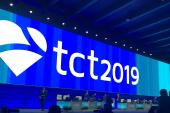P2Y12 Inhibitors Top Aspirin Following Post-PCI DAPT: Network Meta-analysis
The study is the latest is to address the question of which pill may be best for monotherapy in the setting of more complex CAD.

When stopping dual antiplatelet therapy (DAPT) after PCI, it appears that a P2Y12 inhibitor is a better option than aspirin for continuing monotherapy, a network-meta-analysis suggests.
The risk of MI following DAPT cessation was significantly higher for patients continuing with aspirin versus a P2Y12 inhibitor (risk ratio 1.32; 95% CI 1.08-1.62), with no differences seen for major bleeding or other outcomes, according to researchers led by Giuseppe Andò, MD, PhD (University of Messina, Italy). They calculated a number needed to treat (NNT) of 261 to prevent one MI by using a P2Y12 inhibitor instead of aspirin.
Although the findings—published online ahead of the November 28, 2022, issue of JACC: Cardiovascular Interventions—are not definitive, senior author Piera Capranzano, MD, PhD (University of Catania, Italy), told TCTMD that the indirect comparisons in this network meta-analysis support the limited head-to-head data that are available, bolstering them in a larger study population. She and Andò both noted, too, that it was reassuring to see that the benefits of the P2Y12 inhibitors didn’t come at a risk of increased bleeding, suggesting that using this strategy instead of aspirin could be done safely.
Despite the debatable relevance of the observed difference in MI favoring P2Y12 inhibition, “these findings provide further support to the most-recent data showing a benefit of P2Y12 inhibitor over aspirin single antiplatelet therapy for secondary prevention after PCI,” Andò and Capranzano noted in written comments. The results, they added, apply to patients who have had PCI for either acute or chronic coronary syndromes, “and do support aspirin, instead of P2Y12 inhibitor, discontinuation” at the end of DAPT.
The choice of which P2Y12 inhibitor to use for this purpose should be individualized according to a patient’s risk profile while taking into consideration both cost-effectiveness and reimbursement issues, they said.
Ultimately, Andò and Capranzano said, the study “paves the way to design properly sized randomized trials of aspirin versus P2Y12 inhibitor single antiplatelet therapy after guideline-recommended DAPT.”
Expanding the Evidence Base
Single antiplatelet therapy after a period of post-PCI DAPT has traditionally involved aspirin, although alternative approaches have been increasingly investigated in recent years. Several trials have demonstrated that P2Y12 inhibitor monotherapy following short-duration DAPT lessens bleeding without worsening ischemic outcomes when compared with traditional 12-month DAPT.
There is relatively less evidence when it comes to directly comparing aspirin and P2Y12 inhibitor monotherapy following DAPT. The HOST-EXAM trial and a landmark analysis of the GLOBAL LEADERS trial both indicate an advantage for clopidogrel over aspirin in this setting, but the totality of the evidence remains insufficient, Capranzano said.
To provide more data addressing this question, Andò et al performed a network meta-analysis that included 19 RCTs with a total of 73,126 patients who underwent PCI with second-generation DES and received various antiplatelet regimens. One-third of patients received short DAPT followed by P2Y12 inhibitor monotherapy, 28% received short DAPT followed by aspirin monotherapy, and 39% received prolonged DAPT.
In the main analysis, aspirin was associated with a higher risk of MI compared with P2Y12 inhibitors when used after DAPT. There were no significant differences for major bleeding or any of the other outcomes, although point estimates hinted at an advantage for P2Y12 inhibition for stent thrombosis and stroke.
Outcomes Associated With Aspirin Versus P2Y12 Inhibition after DAPT
|
|
Risk Ratio |
95% CI |
|
MI |
1.32 |
1.08-1.62 |
|
All-Cause Death |
1.00 |
0.80-1.26 |
|
CV Death |
1.12 |
0.85-1.47 |
|
Stent Thrombosis |
1.24 |
0.85-1.79 |
|
Stroke |
1.30 |
0.89-1.90 |
|
Major Bleeding |
1.12 |
0.82-1.53 |
Compared with prolonged DAPT, monotherapy with a P2Y12 inhibitor or aspirin was associated with less major bleeding, although only P2Y12 inhibitors had a similar risk of MI (it was higher with aspirin).
The results were consistent across a variety of other analyses and were not significantly affected by DAPT duration or rates of ACS and multivessel disease in the individual trials. Overall, P2Y12 inhibition topped aspirin monotherapy for all endpoints when the options were ranked according to the likelihood of reducing outcomes.
Addressing the high NNT for MI, Andò noted that an analysis focused only on the two studies providing direct comparisons of P2Y12 inhibitors and aspirin found that it was somewhat lower, at 155.
In addition, the NNT could be inflated due to the heterogeneous nature of the populations enrolled in the studies that contributed to the indirect comparisons, Capranzano said, noting that patients in the trials comparing P2Y12 inhibitor monotherapy with prolonged DAPT were a higher-risk cohort. Moreover, she said, the NNT probably would have been lower if it were calculated for all ischemic endpoints, many of which indicated an advantage for P2Y12 inhibition (without statistical significance).
Addressing a Common Clinical Question
Commenting for TCTMD, Faisal Latif, MD (University of Oklahoma Health Sciences Center and Oklahoma City VA Medical Center), noted that managing patients undergoing PCI has become more of a challenge as the population ages and more-complex disease has become more common. After first figuring out the appropriate duration of DAPT, physicians next need to determine which type of single antiplatelet therapy should be used.
In that context, “this network meta-analysis gives us good insights,” Latif said. “There were some other studies previously that showed that maybe continuing the P2Y12 inhibitor might be superior to continuing the aspirin by itself, but I think this lends more credence to that thought process—that probably the P2Y12 inhibitor might be superior to aspirin alone in patients who are going to be on single antiplatelet therapy following PCI.”
Although the NNT to prevent one MI with a P2Y12 inhibitor versus aspirin was relatively high, even a small difference in risk between the agents “is important for us from a practical standpoint,” Latif argued. “If we know that using the P2Y12 inhibitor might lead to less MI and less stent thrombosis compared to aspirin alone, I think that’s a significant finding from a practical perspective.”
More studies, particularly randomized trials, would be needed before making any updates to guideline recommendations around choice of antiplatelet therapy, which should—for now—be individualized at the discretion of the treating cardiologist, Latif advised.
In a general sense, it’s known that more-potent P2Y12 inhibitors like prasugrel and ticagrelor are effective in the setting of ACS, so after PCI in this setting, “strong consideration should be given to” continuing one of those agents after completing DAPT, Latif said.
On the other hand, he said, clopidogrel is likely sufficient for more-stable patients after PCI, except perhaps in populations with a relatively higher incidence of polymorphisms that render the drug less effective.
Dean Kereiakes, MD (The Christ Hospital, Cincinnati, OH), addresses these same considerations in an accompanying editorial, stating that the network meta-analysis “supports aspirin discontinuation at the transition from DAPT to single antiplatelet therapy, with provisions.”
He, too, highlights the importance of considering risks for ischemic or bleeding events and presenting clinical syndrome when selecting a P2Y12 inhibitor, indicating a preference for ticagrelor or prasugrel after short DAPT in the setting of ACS and saying that clopidogrel is likely sufficient in patients with chronic coronary syndromes or those 6 to 18 months past PCI for ACS.
“Alternative therapies such as DAPT de-escalation to low-dose ticagrelor, low-dose prasugrel, or to clopidogrel, in combination with aspirin, reduces bleeding events with similar rates of ischemic events compared with clinical practice guideline-recommended DAPT durations, and this strategy is preferable in populations with high ischemic risk,” Kereiakes advises, concluding that “ongoing trials and meta-analyses, such as performed by Andò et al, will provide the evidence base to prescribe appropriately tailored antiplatelet therapies to our patients.”
Todd Neale is the Associate News Editor for TCTMD and a Senior Medical Journalist. He got his start in journalism at …
Read Full BioSources
Andò G, De Santis GA, Greco A, et al. P2Y12 inhibitor or aspirin following dual antiplatelet therapy after percutaneous coronary intervention: a network meta-analysis. J Am Coll Cardiol Intv. 2022;15(22):2239-2249.
Kereiakes DJ. SAPT after DAPT: tailoring platelet inhibition therapy after PCI. J Am Coll Cardiol Intv. 2022;15(22):2250-2252.
Disclosures
- Andò reports having received personal fees from Bayer, Daiichi Sankyo, Pfizer/Bristol Myers Squibb, Boehringer Ingelheim, Menarini, AstraZeneca, Chiesi, Amgen, and Biosensors, outside the submitted work.
- Capranzano reports having received personal fees from Bayer, Daiichi Sankyo, Boehringer Ingelheim, and Chiesi, outside the submitted work.
- Kereiakes and Latif report no relevant conflicts of interest.





Comments